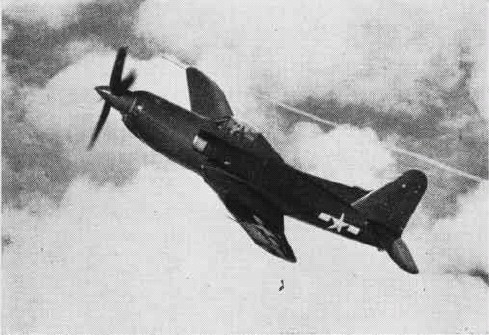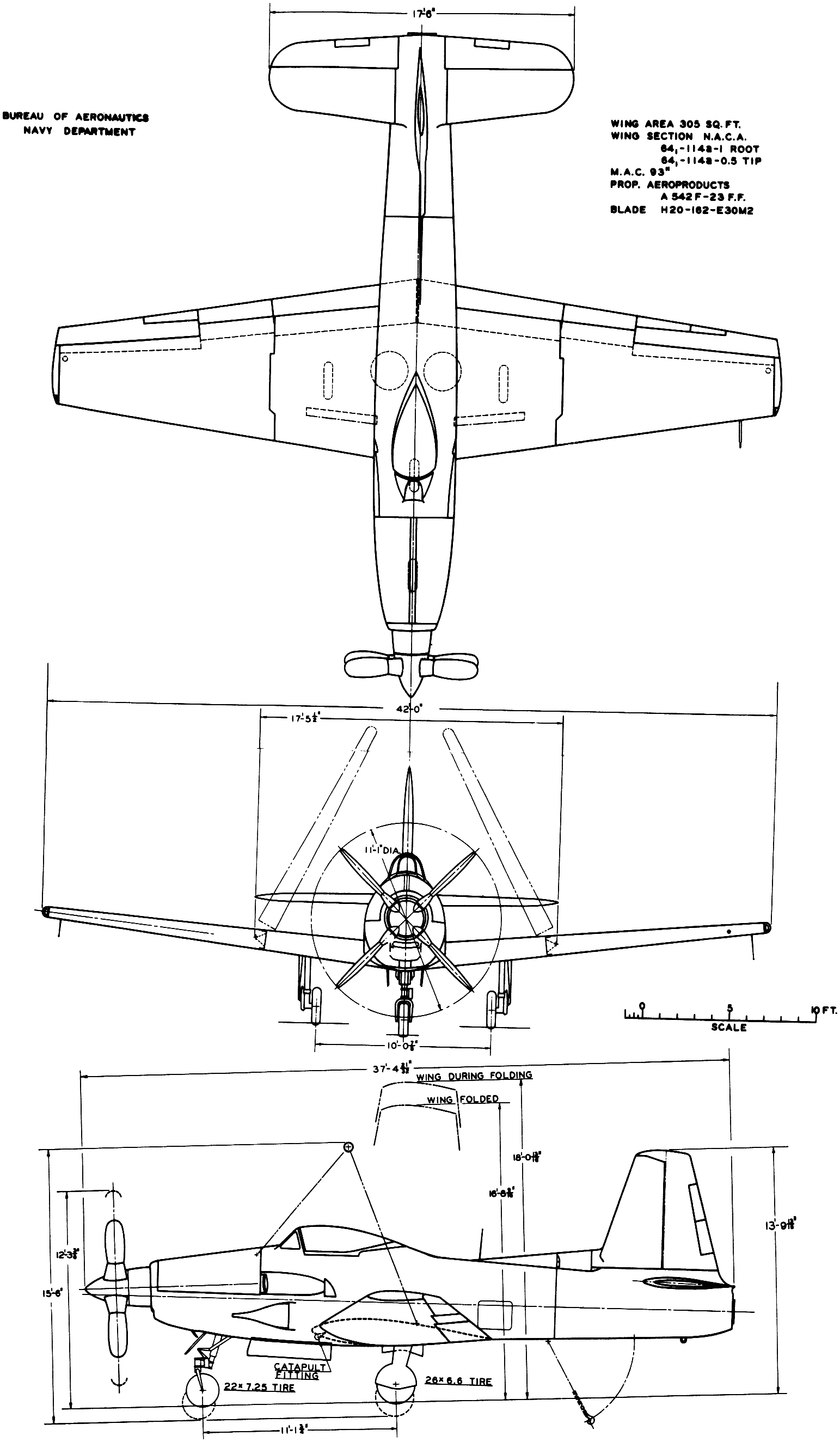XF2R Dark Shark on:
[Wikipedia]
[Google]
[Amazon]
The Ryan XF2R Dark Shark was an American experimental
 The XF2R Dark Shark was based on
The XF2R Dark Shark was based on

'' "Navy Tests Its Hotter Fireball" '', March 1947, Popular Science''
article mid-page 84 {{USN fighters Ryan aircraft Ryan FR2 Dark Shark Low-wing aircraft Mixed-power aircraft Turboprop aircraft Aircraft with retractable tricycle landing gear Carrier-based aircraft Aircraft first flown in 1946
aircraft
An aircraft ( aircraft) is a vehicle that is able to flight, fly by gaining support from the Atmosphere of Earth, air. It counters the force of gravity by using either Buoyancy, static lift or the Lift (force), dynamic lift of an airfoil, or, i ...
built for the United States Navy
The United States Navy (USN) is the naval warfare, maritime military branch, service branch of the United States Department of Defense. It is the world's most powerful navy with the largest Displacement (ship), displacement, at 4.5 millio ...
that combined turboprop
A turboprop is a Gas turbine, gas turbine engine that drives an aircraft Propeller (aeronautics), propeller.
A turboprop consists of an intake, reduction drive, reduction gearbox, gas compressor, compressor, combustor, turbine, and a propellin ...
and turbojet
The turbojet is an airbreathing jet engine which is typically used in aircraft. It consists of a gas turbine with a propelling nozzle. The gas turbine has an air inlet which includes inlet guide vanes, a compressor, a combustion chamber, and ...
propulsion. It was based on Ryan Aeronautical
The Ryan Aeronautical Company was founded by T. Claude Ryan in San Diego, California, in 1934. It became part of Teledyne in 1969, and of Northrop Grumman when the latter company purchased Ryan in 1999. Ryan built several historically and tec ...
's earlier FR Fireball
The Ryan FR Fireball is an American mixed-power (piston and jet-powered) fighter aircraft designed by Ryan Aeronautical for the United States Navy during World War II. It was the Navy's first aircraft with a jet engine. Only 66 aircraft were ...
, but replaced the Fireball's piston engine with a turboprop engine.
Design and development
 The XF2R Dark Shark was based on
The XF2R Dark Shark was based on Ryan Aeronautical
The Ryan Aeronautical Company was founded by T. Claude Ryan in San Diego, California, in 1934. It became part of Teledyne in 1969, and of Northrop Grumman when the latter company purchased Ryan in 1999. Ryan built several historically and tec ...
's earlier FR Fireball
The Ryan FR Fireball is an American mixed-power (piston and jet-powered) fighter aircraft designed by Ryan Aeronautical for the United States Navy during World War II. It was the Navy's first aircraft with a jet engine. Only 66 aircraft were ...
, but replaced the Fireball's piston engine with a General Electric T31
The General Electric T31 (company designation TG-100A) was the first turboprop engine designed and built in the United States.
Design and development
The TG-100A benefited from the Anglo/American technology exchange with one of its designers, Gl ...
turboprop engine driving a 4-bladed Hamilton Standard
Hamilton Standard was an American aircraft propeller (aircraft), propeller parts supplier. It was formed in 1929 when United Aircraft and Transport Corporation consolidated Hamilton Aero Manufacturing and Standard Steel Propeller into the Hamilto ...
propeller
A propeller (often called a screw if on a ship or an airscrew if on an aircraft) is a device with a rotating hub and radiating blades that are set at a pitch to form a helical spiral which, when rotated, exerts linear thrust upon a working flu ...
. The turboprop made for much improved performance over the Fireball, and Ryan proposed the XF2R-2 to use a Westinghouse J34
The Westinghouse J34, company designation Westinghouse 24C, was a turbojet engine developed by Westinghouse Aviation Gas Turbine Division in the late 1940s. Essentially an enlarged version of the earlier Westinghouse J30, the J34 produced 3,000 ...
turbojet in place of the General Electric J31 used as the auxiliary turbojet for the XF2R-1. The XF2R-2 also had a squared-off vertical stabilizer and jet intakes moved to the sides of the forward fuselage with NACA duct
A NACA duct, also sometimes called a NACA scoop or NACA inlet, is a common form of low- drag air inlet design, originally developed by the U.S. National Advisory Committee for Aeronautics (NACA), the precursor to NASA, in 1945.
Design
Prior su ...
s instead of the inlets in the wing leading edge for the XF2R-1.
Although the Dark Shark proved to be a capable aircraft, it never progressed beyond the prototype stage and the XF2R-2 was canceled without being built because the Navy had abandoned the idea of the combination fighter and was instead looking into all-jet fighters, which it considered superior.
Specifications (XF2R-1)

See also
References
Notes
Bibliography
* Ginter, Steve. ''Ryan FR-1 Fireball and XF2R-1 Darkshark, Naval Fighters Number 28. Simi Valley, CA: Ginter Books, 1995. . * McDowell, Ernest. ''FR-1 Fireball, Mini in action number 5''. Carrollton, TX: Squadron/Signal Publications Inc., 1995. .External links
'' "Navy Tests Its Hotter Fireball" '', March 1947, Popular Science''
article mid-page 84 {{USN fighters Ryan aircraft Ryan FR2 Dark Shark Low-wing aircraft Mixed-power aircraft Turboprop aircraft Aircraft with retractable tricycle landing gear Carrier-based aircraft Aircraft first flown in 1946